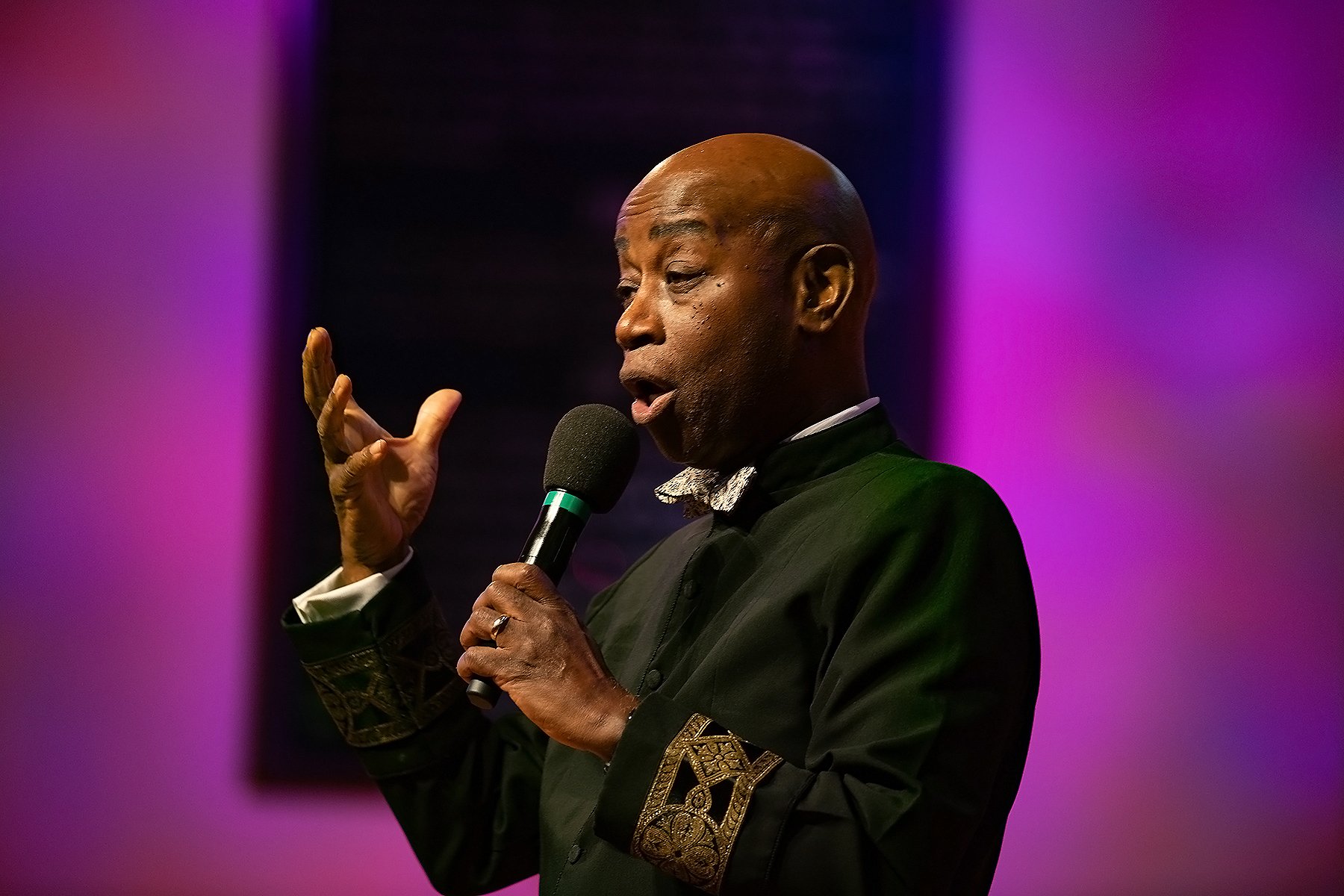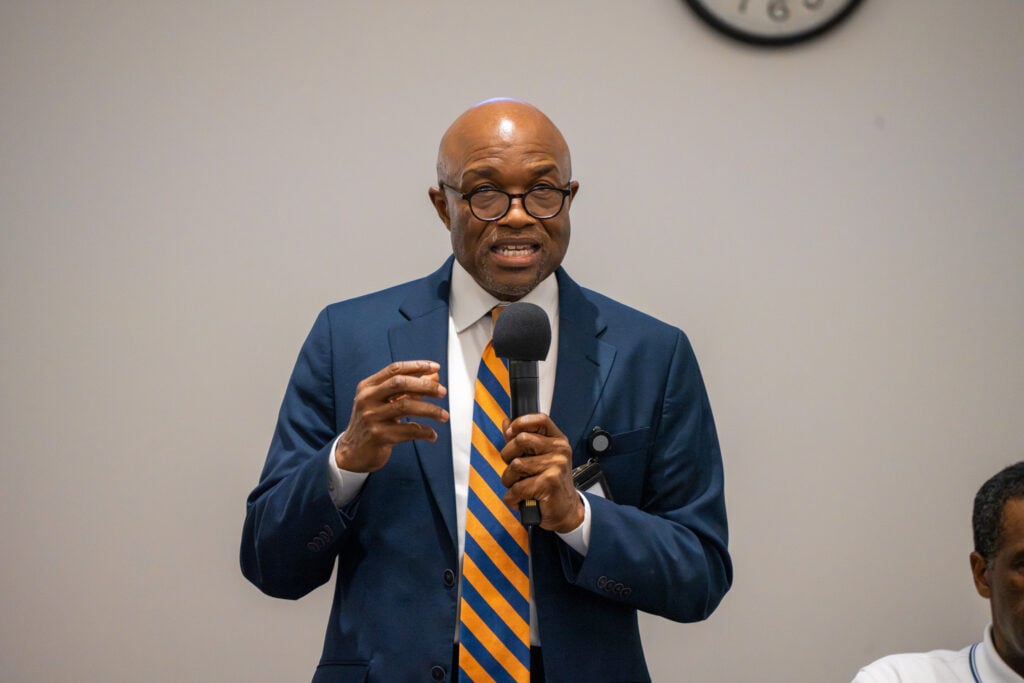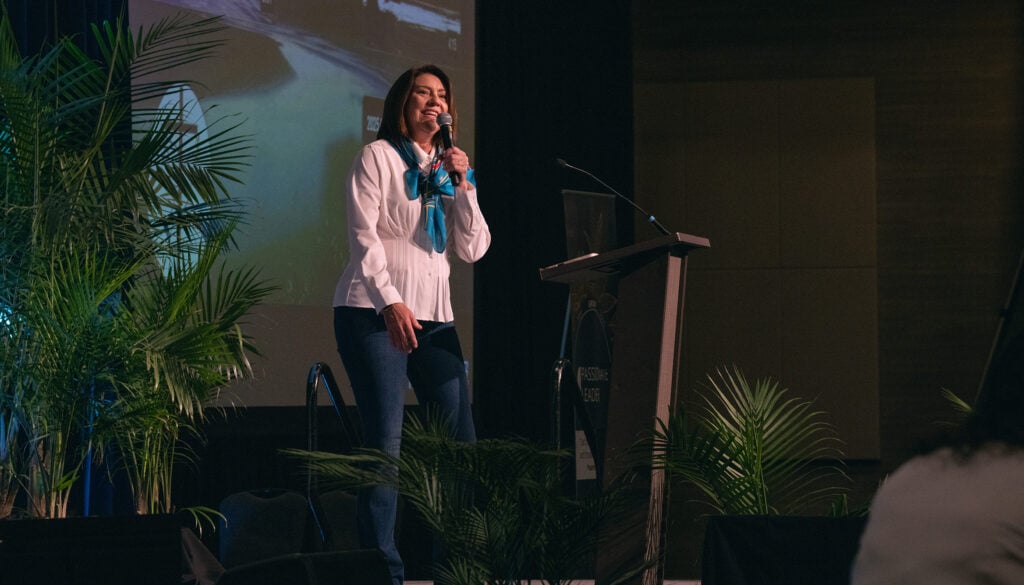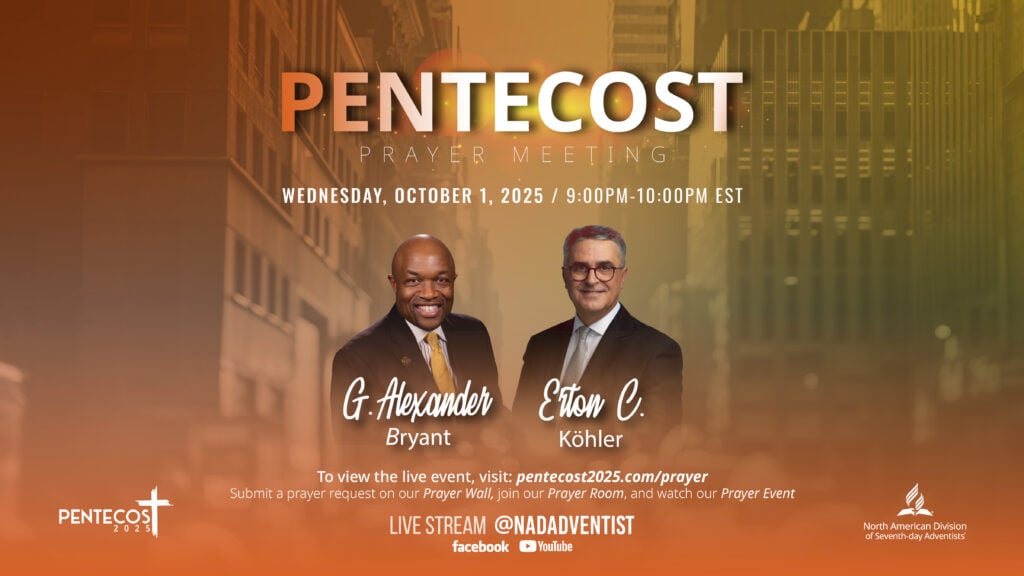“In 1976, when I became a chaplain, it was said that I was leaving the ministry,” said Rear Admiral (Ret.) Barry Black, the guest speaker for a special chaplains’ Sabbath at Oakwood University Church on December 2, 2023.
He continued, “I was looked upon as leaving the ministry because providing spiritual nourishment in a pluralistic setting of religious diversity was not valued by the church.”
The irony of this statement was not lost on the hundreds of chaplains and other guests attending the service launching the chaplains’ track of the Pastoral Evangelism and Leadership Council. “Mercy!” “Wow!” and “My Lord!” echoed through the sanctuary.
Black’s critics could not anticipate his remarkable, far-reaching ministry, including assuming office as the 62nd chaplain of the United States Senate on July 7, 2003, and, previously, serving as Chief of Chaplains of the U.S. Navy. His words underscored that chaplains’ pastoral work in diverse settings is as vital to the church’s mission as ministry within a traditional church context.
More than 700 NAD-endorsed chaplains serve across six disciplines — corrections, healthcare, community, law enforcement, military, and campus chaplaincy. Washington Johnson II, director of NAD Adventist Chaplaincy Ministries, defined chaplaincy as “reflecting the image of God, meeting people where they are.” They were later affirmed for their work as “agents of healing” in a prayer of consecration by Debleaire Snell, lead pastor of Oakwood University Church and speaker/director of Breath of Life Ministries.
Thriving in an Unfriendly World
In Black’s message, “Thriving in an Unfriendly World,” he recounted being in his Senate office on January 6, 2021 — the day the Electoral College verified the presidential election votes, watching helplessly as an angry mob attacked the Capitol. God sent an angel in the form of Gino Aversano, a 6’3”, burly United States Capitol Police officer who followed the Spirit’s prompting to “go find [his] chaplain.”
Black testified, “Beloved, I have lived long enough to know that the angel of the Lord encampeth round about them that fear Him and delivereth them!” (Ps. 34:7, KJV). “But I also know we are living in an unfriendly world.”
“This is not Mister Rogers’ Neighborhood. Yet, I’m so happy that we as believers cannot just survive but thrive … if [we] keep our eyes on Jesus.” He concluded with “guardrails” for navigating perilous times, based on 1 Thess. 5:16-22. These include guarding your joy, unceasing prayer, gratitude, and the Holy Spirit’s presence. “In an unfriendly world, you need the Holy Spirit every day,” he stressed.
He accentuated his points by singing Negro spirituals and hymns. As he concluded, he made two appeals – 1) for those who have been stifling the Holy Spirit” and 2) those willing to fast for our nation and world until 3 p.m. weekly, i.e., a Wesley fast, as Black, and hundreds of senators, chiefs of staff, and other leaders have done since the fall of 2020.
Of Challenges and Honors
During the chaplains’ Sabbath luncheon, keynote speaker Chaplain Johnny Poole, retired U.S. Navy captain and co-founder of Chaplain Care, emphasized that humility signifies strength.
He shared countless stories of mentors who were his guiding lights, expressing his passion to reflect the Greater Light through his work equipping and placing chaplains where needed. The crux of his message was to “‘love the Lord your God with all your heart, with all your soul, and with all your mind,’ … and love your neighbor as yourself’” (Matt. 22:37-40, NKJV).
The Sabbath program closed with the ordination of U.S. Army Chaplain Colonel Primitivo Davis by the Central States Conference. Taking a chaplaincy course in his second year at Oakwood University as a theology major planted a seed. After attending seminary and pastoring within a conference, he said, “I began to feel God tugging on my heart, saying, ‘I called you to ministry, and now I’m calling you to a very specific type of ministry.’” He and his wife discussed it, and after 10 years in pastoral ministry, he made the leap to military chaplaincy.
Twenty-two years later, Davis has no regrets. “I find it very interesting and fulfilling to work alongside other people of faith. I work with priests, Buddhist monks, Muslim imams, and probably every Protestant denomination in America,” he said. Davis also enjoys serving soldiers and civilians holding diverse theological perspectives, including atheists. He shares wisdom from the Word and gently nudges them along a path toward God.
Davis described the broad scope of his role: “People look at chaplains not just through the eyes of the clerical. They look at them as life problem-solvers. And we all have problems.”
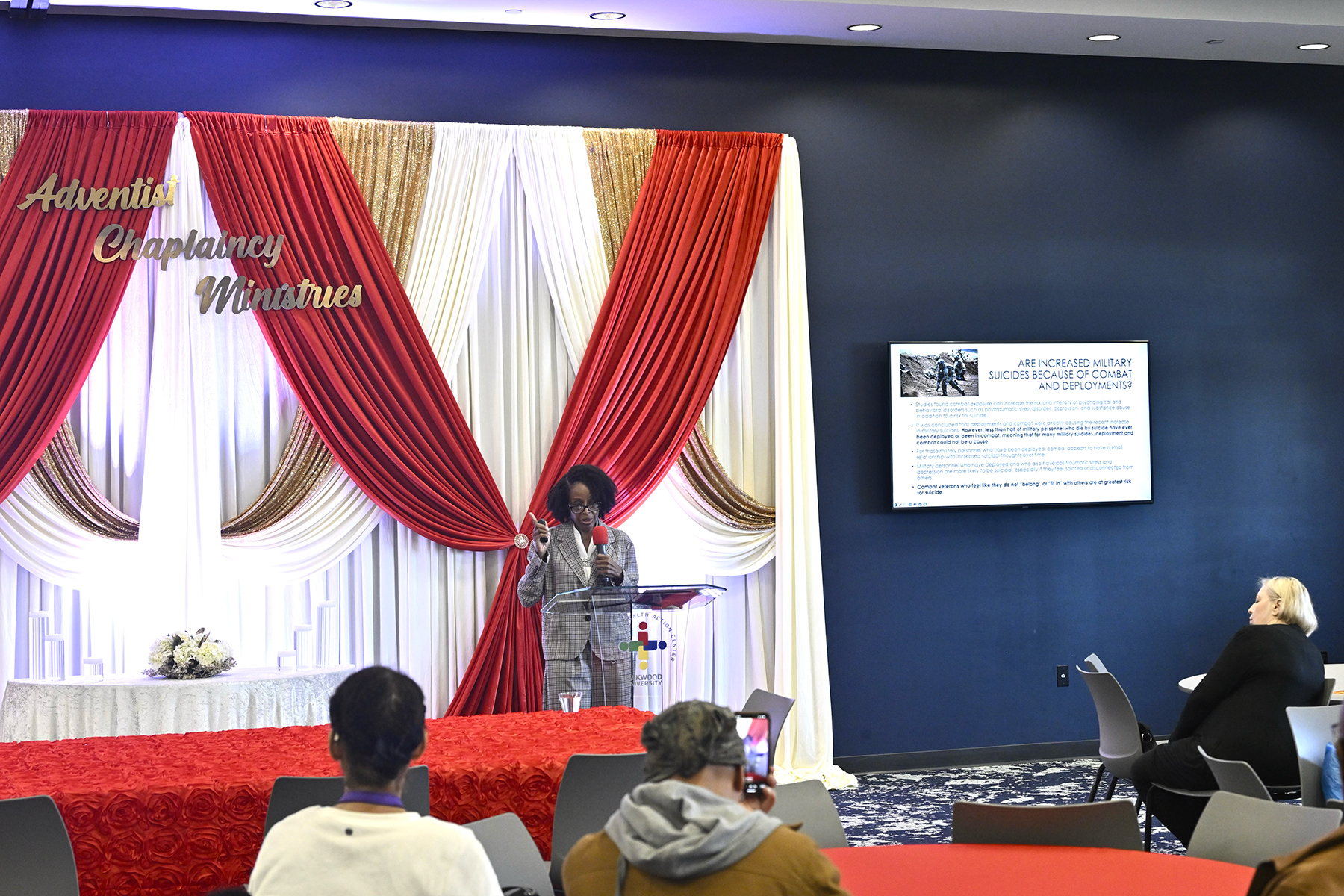
Mental Health Matters
Sunday’s professional development on mental health awareness recognized the impact of mental health challenges on chaplains’ ministry and personal lives. Chaplains’ spouses were also invited, contributing to rich discussions. The day culminated in a heartfelt season of prayer as attendees shared requests for family members, friends, and others grappling with mental or physical health challenges.
“Mental health awareness is an issue we [often] don’t want to address, but as chaplains, we are the frontline. So, we must address [mental health] knowing people are hurting and in need of support, but most of all, God’s love,” said Johnson.
The day began with a devotional from Michael Tomlinson, mental health chaplain with the Central Arkansas Veterans Health System and retired U.S. Navy commander. Tomlinson encouraged attendees to follow Jesus’ blueprint of servant leadership.
Subsequent speakers addressed the gamut of mental health issues, with topics including
- “Mental Health Legislation and Human Rights,” presented by Allan Manuel (Esq.), director, Office of Corporate Security Strategy, United States Department of Energy;
- “Your Mental Health Matters,” presented by Lieutenant Colonel Paula Chavis, United States Air Force, Defense Health Headquarters;
- “Happiness Starts Within: Prioritize Mental Wellness,” presented by Jindriska Vesela, vice-president of financial stewardship, Messages of Hope International Ministries, and mental health nurse practitioner student; and
- “Emotional Health and Spirituality,” presented by Lynval Willaims, lead chaplain, Springfield Hospital Center, and assistant pastor, Renewed Seventh-day Adventist Church (Maryland).
These presentations educated attendees on the signs and symptoms of trauma and mental health issues and ways to boost mental wellness. Speakers encouraged participants to treat people with mental health issues with compassion. “They’re more than the diagnosis given to them,” said Williams, continuing, “Mental health is the good news that recovery is possible.”
Attendees were empowered to support individuals facing mental health struggles through listening, prayer, professional referrals, and advocacy. Manuel noted that advocacy can be as simple as lobbying legislators to use tax dollars for community programs supporting individuals’ mental or physical health needs. He concluded, “Take action, collectively or individually, but take action.”
Presenters also emphasized self-care. Chavis underscored, “You can’t help others if you’re not well,” while Vesela added, “Mental wellness is a community approach.”
Eric Covington, a Veterans’ Affairs Medical Center chaplain since 2022 and retired U.S. Navy officer, attended PELC for the first time with his wife, Larnita, a local church secretary. Both valued the supportive network of chaplains and chaplains’ spouses at the chaplains’ track, as well as the practical training.
“It’s been beautiful, this portion [of PELC]. I learned so much that I can place into my job when I go back. I’m excited! God is just amazing,” said Larnita.
Eric concluded, “[Moving forward], attending PELC is definitely going to be part of our ministerial journeys.”
